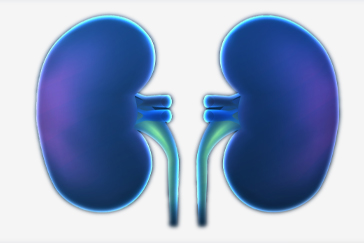 Book Appt.
Book Appt.
 Call Now
Call Now


Diabetic nephropathy is a significant consequence of both type 1 and type 2 diabetes. It's also known as diabetic kidney disease. Diabetic nephropathy impairs the kidneys' normal function of eliminating waste materials and excess fluid from the body. The best strategy to prevent or delay diabetic nephropathy is to maintain a healthy lifestyle and control diabetes and high blood pressure levels. Over time, diabetic nephropathy gradually deteriorates the kidney's filtering system. Early treatment may prevent or slow this illness, reducing the risk of consequences. Diabetic renal disease can cause kidney failure. This is also known as end-stage kidney disease. Kidney failure is potentially fatal. Kidney failure can be treated with dialysis or a kidney transplant.
Symptoms
In the early stages of diabetic nephropathy, there may be no symptoms. In the later phases, symptoms may include:
Causes
Diabetic nephropathy occurs when diabetes causes damage to blood vessels and other kidney cells. Diabetic nephropathy is a prevalent consequence of both type 1 and type 2 diabetes. Uncontrolled diabetes can eventually damage blood vessels in the kidneys that filter waste from the blood. This can result in renal damage and excessive blood pressure. High blood pressure can lead to further kidney damage by increasing pressure in the kidney's filtering system.
Risk factors
If you have diabetes, the following may increase your risk of diabetic nephropathy:
Complications
Complications of diabetic nephropathy might develop slowly over months or years. They may include excessive bodily fluid buildup, hyperkalemia, heart and blood vessel disease, anemia, pregnancy difficulties, and irreversible kidney damage.
Prevention
To reduce your chance of developing diabetic nephropathy, contact your health care team regularly to manage diabetes, treat your diabetes, control high blood pressure or other medical conditions, take non-prescription medications only as prescribed, maintain a healthy weight, and avoid smoking.
Diagnosis
Routine screening tests may include:
Other diagnostic tests may include:
Treatment
The first step in treating diabetic nephropathy is to treat and control diabetes and high blood pressure. Treatment includes diet, lifestyle changes, exercise, and prescription medicines. Controlling blood sugar and blood pressure might prevent or delay kidney issues and other complications.
Medications
In the early stages of diabetic nephropathy, your treatment might include medicines to manage the following:
Ask your health care professional if treatments such as SGLT2 inhibitors or GLP-1 receptor agonists work for you. These treatments can protect the heart and kidneys from damage due to diabetes.
Treatment for advanced diabetic nephropathy
For kidney failure, also called end-stage kidney disease, treatment focuses on either replacing the work of your kidneys or making you more comfortable. Options include kidney dialysis.
Peritoneal dialysis uses the inner lining of the abdomen, called the peritoneum, to filter waste. A cleansing fluid flows through a tube to the peritoneum. This treatment can be done at home or work. However, not everyone can use this method of dialysis. Sometimes, a kidney transplant or a kidney-pancreas transplant is the best treatment choice for kidney failure. If you and your healthcare team decide on a transplant, you'll be assessed to find out if you can have the surgery.
Lifestyle and home remedies
To control blood sugar and high blood pressure, you must eat right, exercise, and care for yourself. Your diabetes care team can assist you with the following goals: monitoring your blood sugar, being active most days of the week, eating a good diet, quitting smoking, maintaining a healthy weight, taking aspirin daily, and communicating with your health care team.
Conclusion
Diabetic nephropathy is a progressive diabetes condition that must be managed proactively to avoid kidney failure and associated problems. Key strategies include keeping blood sugar and blood pressure under control, eating a kidney-friendly diet, managing cholesterol levels, and adopting a healthy lifestyle. Early detection and comprehensive treatment can frequently dramatically reduce the progression of diabetic nephropathy, improving quality of life and long-term results. Regular monitoring and collaboration with healthcare experts are critical for providing personalized treatment and timely interventions.
SHALBY Sanar International Hospitals provides extensive medical procedures backed up with our state-of-the-art technology and a team of highly qualified & experienced clinical experts.

Patient from Indonesia gets Kidney Transplant | SHALBY Sanar Interntional Hospitals

Patient from Indonesia gets Kidney Transplant | SHALBY Sanar Interntional Hospitals

Successful Kidney Transplant of a patient by Dr Amit Kumar

Successful Live Renal Allograft Transplant: Mr. Zaid's Journey to Recovery by Dr Amit Kumar Yadav

Life Renewed: Mr. Evans Elieza Aveva's Remarkable Kidney Transplant Journey

A successful Kidney Transplant gives Mr. Tache from Ethiopia, a new beginning

Successful story of kidney transplant I #kidneytransplant #patient testimonial
Our doctors pen down their research findings and experiences from time to time. Their words provide deep insight into the latest techniques, technologies and other advancements in healthcare. It provides expert answers to all kinds of health questions for real-life issues.
VIEW ALL




Since the day of its foundation, SHALBY Sanar International Hospitals is committed to provide comprehensive healthcare services. It regularly organizes awareness programs in its premises and encourages outdoor healthcare activities and camps with an intent to put focus on preventive healthcare.
VIEW ALL